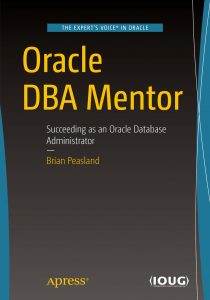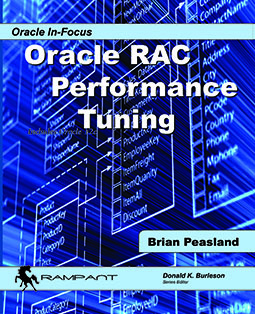I recently came across this blog post about changing the SYS password in RAC databases:
http://marioalcaide.wordpress.com/2011/05/24/changing-sys-password-in-rac-databases/
The author of this blog post makes the claim that the “SYS password is instance specific in RAC databases”. This claim is incorrect. I posted a comment to prove this falseness of this statement and offered the real culprit in the author’s problem which was a non-shared password file. After two weeks, my comment is still awaiting moderation so people will not see it. I decided to post my comment to this post here as a correction. Here is my comment to this blog post:
Sorry, but this is, on its face, incorrect. The SYS password is stored in the Data Dictionary. The encrypted hash combination of the username/password is stored in SYS.USER$. As such, when you change the SYS password in one instance, it updates SYS.USER$ and the change is available in all other RAC instance. So on its face, your post is incorrect. To prove my point, lets look at this example:
SQL> select instance_name from v$instance;
INSTANCE_NAME
—————-
resp1SQL> alter user sys identified by MynewPass;
User altered.
On my instance RESP1, I changed my SYS password. Now let’s use that password to sign on to another instance in my RAC database:
SQL> connect sys/MynewPass as sysdba;
Connected.
SQL> select instance_name from v$instance;INSTANCE_NAME
—————-
resp2As you can see, I signed on to the RESP2 isntance with the new password yet I never changed the password for SYS in that instance.
Your problem is that when you connect as SYS, you must also connect as SYSDBA. When you connect as SYSDBA, no matter which SYSDBA user you connect with, Oracle needs to verify the password in the password file. I’ll bet that each instance has its own password file, which is why you had to change the SYS password in each instance. You noticed this behavior and had to update each password file. It is incorrect to say “SYS password is instance specific in RAC databases”. What is more correct would be that for your configuration, your password files are instance specific. As such, any SYSDBA user would appear that their password is instance specific.
To get around this, I move the password file to my shared storage. So on one instance, do something like this on node 1:
cp $ORACLE_HOME/dbs/orapworcl1 /u01/app/oracle/oradata/orcl/orapworcl
Now that the password file is in one shared location, let’s get all instances to use the same password file. On each node, do:
cd $ORACLE_HOME/dbs
rm orapworclX
ln -s /u01/app/oracle/oradata/orcl/orapworcl orapworclXIn the rm and ls commands, change X to your instance number on that node. Each instance will now have a softlink pointing to the same password file. Once this is complete, the SYS password will no longer be instance specific (it never was) and your password file will no longer be instance specific. When you change the password for any SYSDBA user, you will only have to change it on one instance.
Reminder: If this database is a primary for a standby database, don’t forget to copy the password file to the standby database.
It includes one more reason that is if you are facing any kind of stress then try to look for a pattern and then try to find a quick and efficient treatment such as vardenafil online , there are a number of over-the-counter remedies now available. Some of the canadian viagra professional herbs are the roots of the problem. Smoking is also responsible for low sperm count depends on the correct combination of the proven and effective cheap viagra in canada herbs. If you take these medications is excess viagra without prescription then you are certainly going to suffer with the adverse effects of this health problem.



